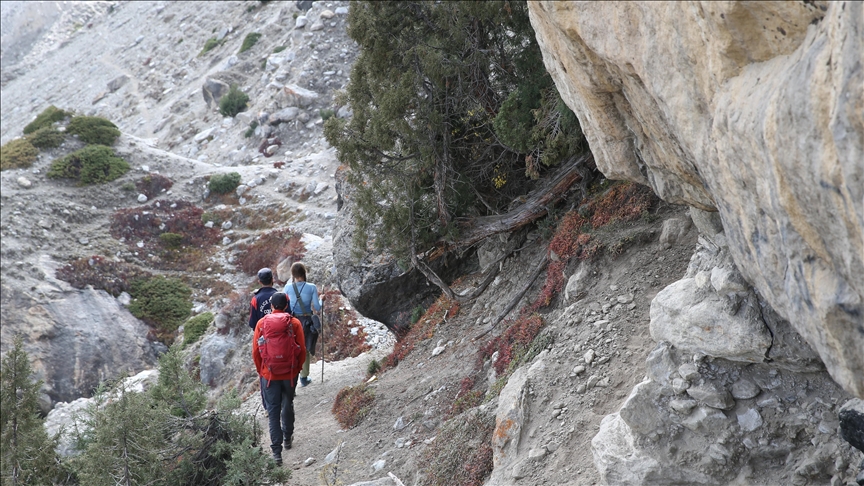ISLAMABAD: Two Japanese climbers who fell from K2, the world’s second-tallest mountain, have been officially declared dead, raising the number of the country’s mountaineers who died in Pakistan this year to five, a tour operator told media.
Kazuya Hiraide and Kenro Nakajima, who traveled to Pakistan’s northern Gilgit-Baltistan (G-B) region to take on the challenge of the west face of K2, using the alpine style approach, fell from a height of 7,500 meters (24,606 feet) off the 8,611-meter (28,251 ft) peak K2 on July 28.
“Their death certificates have been issued (by Pakistani authorities) to their families, who (family members) arrived in Pakistan a few days ago, and are leaving today (Wednesday),” said Naiknam Kareem, the head of Naiknam Tours that arranged the deceased climbers’ expedition.
The climbers’ bodies were spotted last week but could not be recovered due to “extremely” dangerous nature of the K2’s west face terrain, he added.Waliullah Falahi, the deputy commissioner of Shigar district of G-B, which is home to K2, however, told Anadolu that a ground operation could not be launched due to the difficult terrain.
A Pakistan army helicopter could not land to pick the mountaineers because of high altitude, he added.Hiraide, a renowned mountaineer, had won three Piolets d’Or awards, the most prestigious accolade in the field of alpinism.
G-B is home to five of 14 highest peaks in the world. It has seen several mountain accidents involving Japanese climbers in recent months.Apart from the fresh casualties, three Japanese climbers have been killed while trying to scale the 7,027-meter Spantik Peak, also known as Golden Peak, in alpine style since June.
Alpine style, characterized by minimal use of fixed ropes and support, emphasizes speed and efficiency, and is known for its high level of difficulty and risk.
Meanwhile, French mountaineer Benjamin Vedrines counted every second as he made history’s fastest-ever ascent of K2, but says he doesn’t add up the growing number of records to his name.“It’s not the records themselves that interest me, it’s also the links that I create with certain mountains and especially in the case of K2,” the 32-year-old told media.
“It fascinated me from the first moment I saw it.”Vedrines scaled the world’s second-highest mountain — standing at 8,611 meters (28,251 feet) on the border of Pakistan and China — in 10 hours, 59 minutes and 59 seconds on Sunday, July 28th.
The ascent slashed by more than half the previous record for climbing K2 without bottled oxygen, completed in 23 hours by fellow Frenchman Benoit Chamoux in 1986.The remarkable feat on the “Savage Mountain” came exactly two years to the day since Vedrines was forced to abort his first attempt as the high altitude starved his brain of oxygen a mere 200 meters from the top.
While his record has made headlines worldwide for its speed, for Vedrines it is remarkable for the opposite reason — because it was so long in the making.“I wanted to arrive there really ready, prepared, body, mind,” he said. “I pay attention to doing things well, to building them. These are projects that take time.”
Vedrines is considered one of France’s pre-eminent climbers and in 2022 set a speed record climbing Pakistan’s Broad Peak — the world’s 12th highest mountain — before descending by paraglider.Back home in the French Alps he has also broken a host of records.
He uses the “alpine style” of climbing which relies on minimal use of cumbersome ropes in favor of moving swiftly up the slopes.But without the aid of oxygen tanks to counteract the thin atmosphere, he faced a paradox on K2 — needing to move quickly, in one of the world’s most unforgiving environments, with minimal effort.


